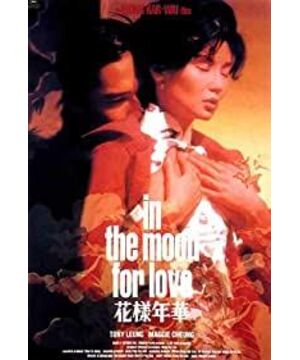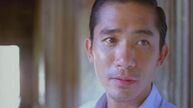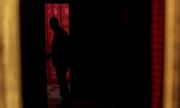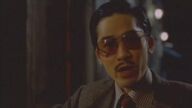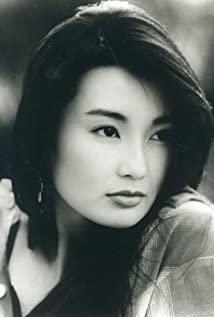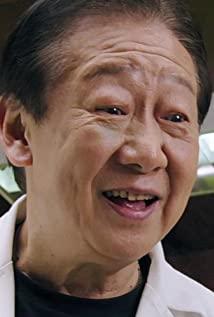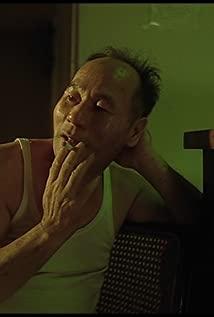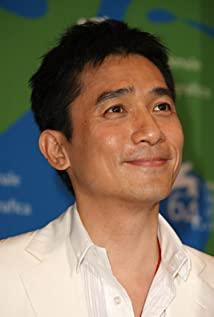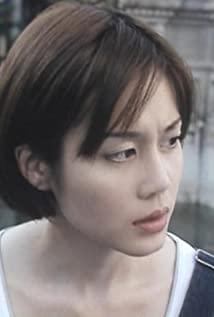First published on the public account [Fog Fengzhi], welcome to pay attention~
In the finale of "In the Mood for Love", Su Lizhen brought her son Yongsheng to live in the old house again, and Zhou Muyun also came back to visit, but when she learned that the previous landlord had moved away for a long time, and the neighbors didn't know who they were, she didn't knock. The door of Su Lizhen rang, and the two missed it. Later, Zhou Muyun also came to Angkor Wat in Cambodia, and told his secrets to a tree hole. The whole film was over. In this article, I try to interpret, why is there a slightly abrupt documentary about the royal family welcoming General de Gaulle in the middle of these two paragraphs? What is the metaphor? How does it relate to the cut-out segment?
This part of the documentary is not only to bring the distance between the story world and the real world, but also a "metaphor of time". This segment records a grand scene, which is described in the film as "writing an unprecedented page in the country".
Corresponding to the previous word card "That era is over, and everything that belongs to that era does not exist". Even a major event in history, an important day, will become no longer important and clear over time, and there may only be a vague image or a faded memory. After Zhou Muyun told Shudong the secret, the director took many aerial scenes of Angkor Wat. Because monuments are the only things that can last long after the passage of time, not people and memories.
Another point worth mentioning is that at the end of the scene, a monk looks down at Zhou Muyun from the back of his head. It is a special over-the-shoulder shot. The omniscient point of view is watching Zhou Muyun like an audience. Usually there is a sense of pity when shooting from a low angle. In fact, the whole movie is full of time metaphors. For example, the clocks that often appear in the picture; the cheongsam that Su Lizhen changes from time to time, etc. Another point that the ending is more difficult to understand is probably because the director made a lot of cuts in this paragraph.
Accidentally, I saw the censored ending clip. It was the reunion of the two in Cambodia. At this time, Su Lizhen was wearing a light and gentle red patterned cheongsam. Facing Zhou Muyun, she felt a lot of generosity. The two chatted that their mutual friend was about to get married. When they learned that Su Lizhen was still with her husband, and Zhou Muyun was alone, he smiled and asked her to help find someone and communicate politely. Finally, he said that he wanted to go back to Vietnam. If she's going, drop by to see him.
They said goodbye like any pair of long-time acquaintances. She turned away. He stopped her again.
Close-up of Liang Chaowei's melancholy eyes with a little beard, there is a trace of grievance in the vicissitudes of life. He asked, did she ever call him later? There seemed to be tears in her eyes: "I can't remember."
Seeing this, I seem to understand why this reunion was omitted from the feature film. Perhaps hesitating to talk is the key to "In the Mood for Love", they just have to rehearse hurt and parting again and again, and miss each other again and again. There are very few things to say when we meet again. And it's cruel and straightforward, it's better not to say anything. The second reunion was even more horrific. With only one or two slow-motion shots, they meet in the narrow downstairs noodle shop they once passed by. At this time, Su Lizhen no longer wore cheongsam, because it was no longer popular in those days. Her hairstyle has also aged a lot. They are no longer young. The two people stared at each other expressionlessly in the smoke, with a pair of sunglasses in between. Surprised, sad, no way to tell. The next scene is when Su Lizhen and her husband are talking on the phone, saying some ordinary things, and there is no fluctuation in her voice. In my opinion, such a reunion is the real cruelty. And it's cruel and straightforward, it's better not to say anything and never meet again in this life. Regret is beautiful too.
I still remember when Su Lizhen first went to 2046 to find Zhou Muyun, she was entangled in her heart, she was scurrying up and down between the stairs and the corridor, there were four consecutive shots, namely: Su Lizhen going up the stairs, going up the stairs, going down the stairs, going up the stairs; And Su Lizhen went downstairs after wandering in the corridor, but she came out of the room in the next shot. From the perspective of continuity, it is obviously a bit jumpy and abrupt. But there may be another possibility. Perhaps it wasn't the director's intentional confusion to create tension, but the fact that he was not satisfied with the commonly used "lianxi editing" or "classical editing" that classical films focused on "harmony". A series of jump cuts are deliberately used to make the time and space abrupt, in order to highlight the tension in Su Lizhen's heart at this time. This passage reminds me of the characteristics of thematic montage editing: "Thematic editing emphasizes the connection of ideas, while ignoring the continuity of actual time and space."
Su Lizhen is destined to be unable to cross the door in her heart, just like she always wears a high-necked cheongsam, with the buttons tightly fastened, the cheongsam retains the traditional beauty, and also records the bondage and binding of traditional ethics on people.
During the three brushes, I discovered a small detail, that is, although Mrs. Zhou did not show her face, she was also very particular about a back shot, and arranged for her to wear a V-neck skirt on the back. Compared with other women wearing high-necked cheongsam, Mrs. Zhou's dress is a bit too fashionable, suggesting that she is not bound by ethics. In that year, Su Lizhen and Zhou Muyun, who did not break through their own ideological confinement, hid their love in fear and missed each other forever. But to miss is to miss. I like "In the Mood for Love" without any reunion.
View more about In the Mood for Love reviews


